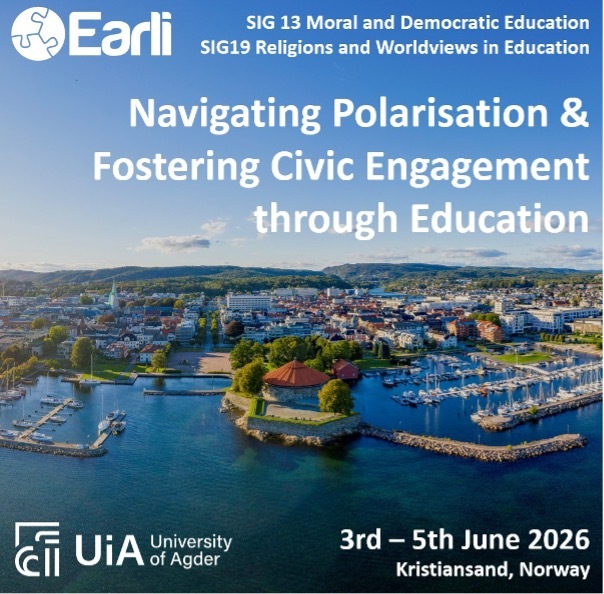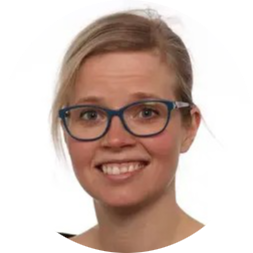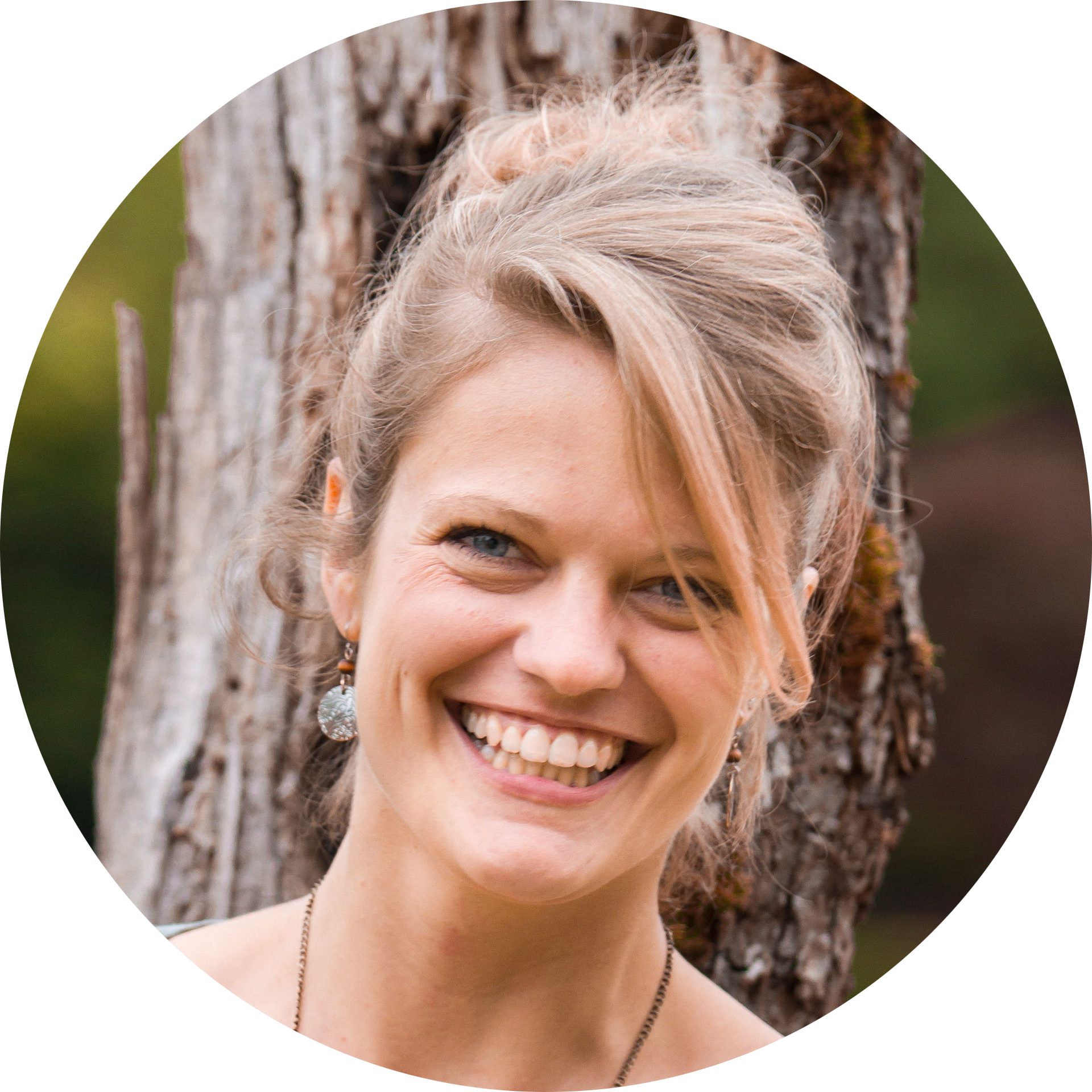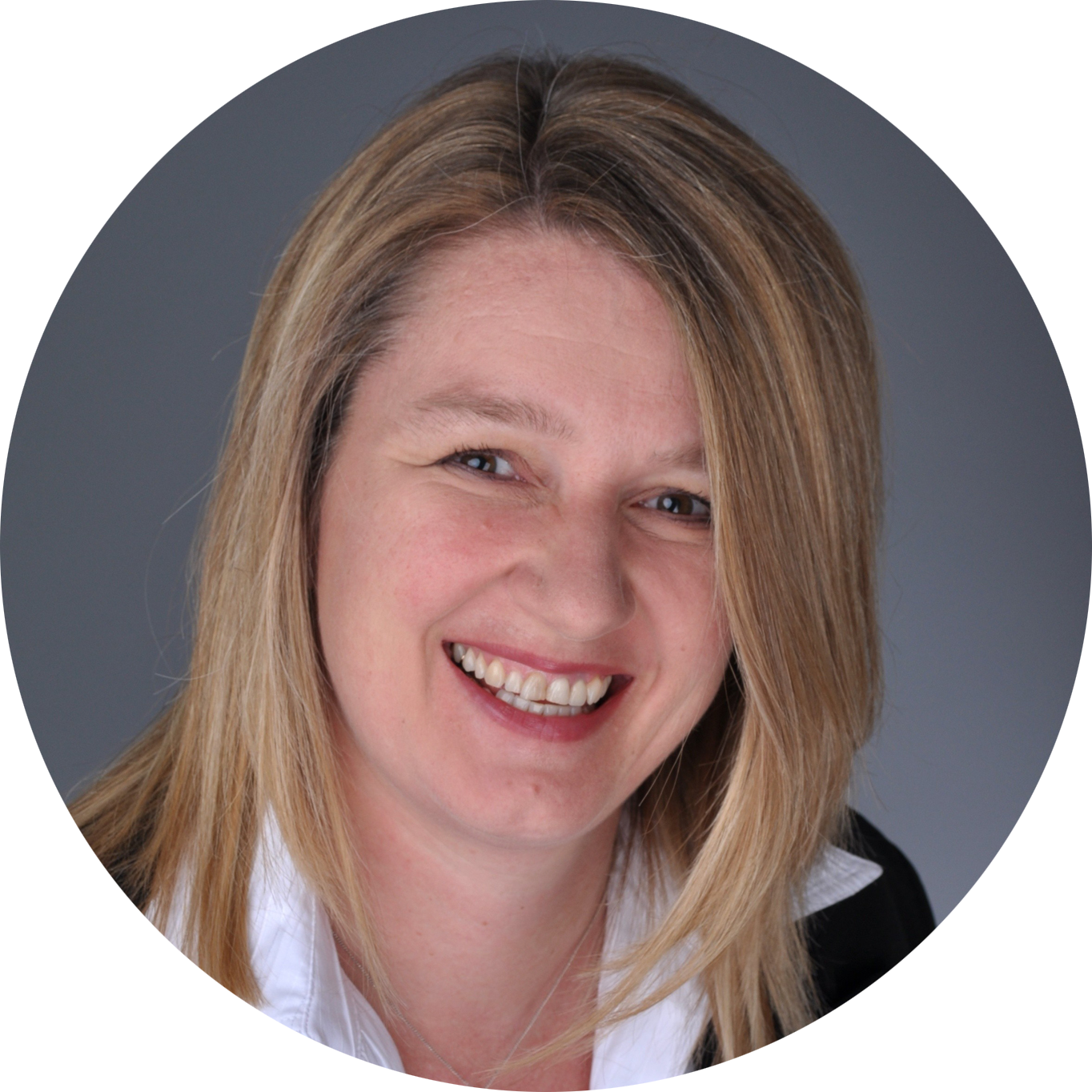
Christer Mattson
University of Gothenburg / The Segerstedt institute, Sweden
Navigating Polarisation and Fostering Civic Engagement through Education

The organising team of SIG 13 ‘Moral and Democratic Education’ and SIG 19 ‘Religions and Worldviews in Education’ warmly welcome you to our joint conference!
In contemporary societies, polarisation significantly influences public discourse and threatens social cohesion (Emanuele & Marino, 2024; Pausch, 2021). Polarisation refers to the process of increasingly diverging opinions and attitudes. Social groups align along ideological, political, cultural, or religious lines, and individuals retreat into “echo chambers” which reinforce existing beliefs and worldviews and portray differences as threats, normalising extreme positions (Cosentino, 2020; Leivska, 2024). Although it can empower minority groups, it also risks fostering radicalisation and the acceptance of violence.
Theoretical approaches to polarisation highlight both cognitive and affective dimensions: from in-group/out-group mechanisms and identity politics to competing truth claims and the decline of shared narratives (Leiviska, 2024). Consequently, the willingness to engage and the capacity to tolerate and constructively navigate ambiguity diminish. Thus, polarisation poses a threat to democracy, as it undermines dialogue, impedes collective problem-solving processes and makes it difficult to adopt alternative perspectives. Educational institutions face the challenge of countering these effects whilst striving to cultivate meaningful civic engagement and to foster students’ and pupils’ abilities to participate in society in a critical and self-determined manner.
Both SIGs commit to address the balance between open discussion and the protection of minorities and diversity as a vital concern in classrooms and wider societies. This joint conference aims to explore how education can act as a transformative tool in navigating polarisation and promoting inclusive engagement across ideological, political, cultural and religious lines, with attention to the roles of citizenship and democratic education, and religious and worldviews education.
The joint conference seeks to foster connection and collaboration between members of both SIGs and aims to develop unique and relevant perspectives with academic and practical implications. We welcome theoretical, empirical, and practice-based contributions from disciplines including - but not limited to - education, theology, political science, philosophy, sociology, and religious studies, which relate to the scope of the two SIGs — Moral and Democratic Education and/or Religions and Worldviews in Education. We encourage submissions relating to the conference theme but emphasise that all submissions relating to either SIG are welcome at this joint conference!

University of Gothenburg / The Segerstedt institute, Sweden

University of Helsinki, Finland

If you're a JURE member, this could be you! Just tick off the box to be considered for a JURE keynote in the submission form!

TU Dortmund, Germany
Classroom emotions in civic education: the role of open classroom climate for emotions and civic learning outcomes.
Call for papers
Submission opens
Submission deadline
Review process
Letter of Acceptance
Early bird and presenter registration deadline

Conference registration will open in February 2026.
The conference fee includes registration, coffee breaks, lunches, opening reception on Wednesday 3rd June 2026. A boat trip in the evening before the conference, the conference dinner, and social-professional events are not included.
Due to dynamic currency exchange rates, we provide registration fees in the local currency Norwegian Kroner (NOK) below. We recommend using an online tool to convert fees into your own currency, for example the one provided by Google.
*Check the website https://www.earli.org/join for information on EARLI membership.
Cancellation Policy
Conference Registration Fee: If you cancel before May 15, 2026 (GMT 23:59), an administration fee of 60% will be applied (resulting in a 40% refund). No refunds will be issued after May 15, 2026. Cancellations must be made via the email sigs13and19@uia.no.

The detailed programme will be published as soon as it is finalised. It will be continuously updated to reflect possible changes in presentations. Please also observe for last minute changes in room allocation and chairs.
SOCIAL & CULTURAL PROGRAMME
Pre-conference boat trip
Opening Reception
Conference Dinner
Post-conference social-professional events
Proposals can only be submitted via the conference system at https://www.earli-eapril.org/login from 15th October. Submissions via e-mail will not be processed. We require experts for the review process and encourage participants to sign up for this purpose in the submission process!
The conference formats are Symposia, Roundtable, Poster and Paper sessions.




The conference will take place at the University of Agder in Kristiansand in the very south of Norway.
The University of Agder (UiA) is organised into six faculties and one teacher education unit. The university has 14 000 students and 1300 faculty and staff members. It is one of the youngest universities in Norway, but its history dates back to 1839 when the first teacher training institution in the region was established. UiA contributes significantly to academic development and teacher education in Norway. Being a driving force for societal and regional development, the University of Agder has close contact with industry, organisations and cultural institutions. It is an internationally oriented university in a region exposed to strong international competition.
Kristiansand is known as the 'capital of Southern Norway' with beautiful nature in its immediate surroundings, being the rough seaside and isles to the south and the wide forest surrounding the rest of the city. Kristiansand also has a variety of museums, galleries, and Norway’s largest zoo and amusement park. More information about activities and attractions in and around Kristiansand can be found on the Visit Norway website.
The University of Agder is located approximately a 30-minute walk from the city center. It is also easy to reach by bus or taxi. The university’s address is Universitetsveien 25, 4630 Kristiansand. As soon as you see the main entrance you are almost there!
You can travel to Kristiansand by air, train, boat and bus.
Kristiansand has its own airport: Kjevik (KRS). Kjevik is connected directly to Copenhagen and Amsterdam. Frequent domestic flights arrive from and depart to Oslo, Bergen, and Stavanger.
Kjevik Airport is about 20-minutes away from the University and the city center. The local bus line 35 travels from the airport to the university and the inner city every hour during the day. You find information about how to plan your journey and how to travel on the local buses in Agder here. A taxi app can be downloaded here.
Kristiansand lies right beside the sea and is therefore also accessible by boat. Ferries (Color Line and Fjord Line) go between Kristiansand and Hirtshals (Denmark) and various cruise ships call on Kristiansand harbour every year.
By train
The Norwegian railway company operates all lines in Norway. Trains run directly between Kristiansand and Oslo (about 4.5 hours), and between Kristiansand and Stavanger (about 3 hours). Tickets can be bought online and more information can be found on the website of https://www.vy.no/en
There are various bus companies caring for travellers who travel longer distances departing from or arriving in Kristiansand. Information can for example be found on the following websites: https://www.vy.no/en, https://www.flixbus.no/
Kristiansand offers hotels in different price classes, with Citybox often being the cheapest option, Thon and Comfort hotels usually being in the medium price range, and Scandic Bystranda, Clarion Ernst Hotel and Radisson Blu often being the most pricey options, especially during summer time. There are also options available for renting private accommodations, like smaller holiday apartments and similar. We recommend using online booking websites to compare options and prices, and to book your accommodation as early as possible.

SIG 13 – Moral and Democratic Education
University of Duisburg-Essen, Germany

SIG 13 – Moral and Democratic Education
KU Leuven, Belgium

SIG 13 – Moral and Democratic Education
University of Agder, Norway

SIG 19 – Religions and Worldviews in Education
Tampere University, Finland

SIG 19 – Religions and Worldviews in Education
University of Siegen, Germany

SIG 19 – Religions and Worldviews in Education
TU Dortmund, Germany

Dept. of Education

Dept. of Education

Dept. of Education

Dept. of Education

Dept. of Religion, Philosophy, and History

Dept. of Religion, Philosophy, and History

Dept. of Sociology and Social Work

Dept. of Political Science and Management
For any inquiries about the conference, please contact: sigs13and19@uia.no